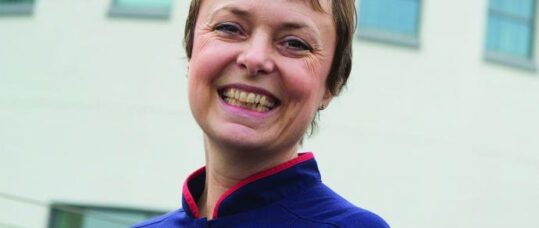Improving patient discharge

Nationally the NHS providers face the challenge of ensuring timely patient discharge. Whereas historically in the NHS winter heralds an increase in pressure, which is currently an increase in patients with complex needs. Last summer Northumbria Healthcare opened the first specialist emergency care centre in England where emergency care consultants and a range of specialists are on duty 24/7. Seeing the right specialist can greatly aid recovery but so can access to integrated teams across primary, secondary and community care at the right time and in the right place.
Related Article: MPs vote to legalise assisted dying in England and Wales
Community nursing is playing a key role in delivering integrated care by working with hospitals. My role as a district nurse and clinical team lead for the Hospitla2Home team at The Northumbria Hospital is an example of how community nursing is helping to ensure the timely discharge of patients with complex needs. Obviously one of the big differences from being a district nurse is working in a hospital, however, I do still regularly link in with community matrons when we are setting up care packages to ensure patients move from hospital to home seamlessly.
Having worked in both settings I can also empathise with the distinct issues and pressures community and hospital staff face relating to discharge pathways. For example, previously when district nurses followed up on patients who had been discharged things didn’t always go smoothly; sometimes because they did not have all the information they needed at the right time or the linkages with other healthcare professionals and agencies involved in the patient’s care wasn’t as good. We have quite a unique set up as Hospital2Home consists of health and social care professionals including therapists, social workers and discharge nurses.
Related Article: Super-regulator finds ‘weaknesses’ across NMC’s regulatory functions
Having a single discharge team in our hospitals, including community and hospital staff, we facilitate front of house turnaround in the emergency departments, utilising appropriate community pathways on a daily basis. Experienced health and social care professionals work with each specialty area to facilitate the discharge of complex patients who require follow up care in the community. This might be because they struggle with daily tasks like preparing meals, or to mobilise themselves sufficiently to get around safely at home, or if someone is terminally ill and wants to die at home, we work with palliative nurses to fulfil their wishes.
If a patient needs rehabilitation to help them mobilise when they go home we link in with our short-term support service that provides up to six weeks of rehabilitation and reablement, which can involve practising daily tasks like getting dressed or preparing meals. In this way the team is a catalyst to getting people home safely and faster who are medically fit so they don’t stay longer than necessary and don’t get readmitted, although there are inevitably some cases where people do need to be readmitted.
Related Article: Could your nursing team be next to receive a General Practice Award?
Our approach is working in our hospitals with 50-60% of patients discharged the same day, significantly fewer long-stay patients and there is no evidence of an increase in readmissions. The fully integrated approach has resulted in increased patient satisfaction, with more people maintaining their independence in the community than the national average and fewer people requiring longer-term support. Recent figures of referrals to the team have increased from 174 in April 2014 to 394 in October 2015. Even during the winter of 2014 when A&E departments experienced unprecedented patient attendances creating a shortage of beds, the length of hospital stays were reduced by between two and five days.

See how our symptom tool can help you make better sense of patient presentations
Click here to search a symptom


With winter being the prime time for admissions to hospital, Northumbria Healthcare look at the improvements their emergency care centre has made



